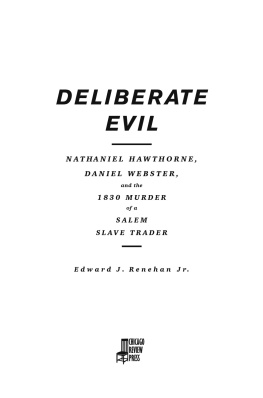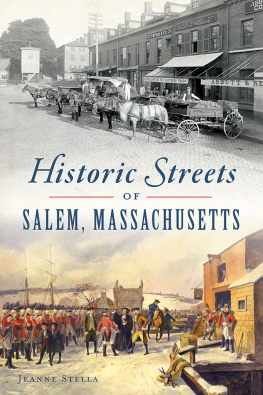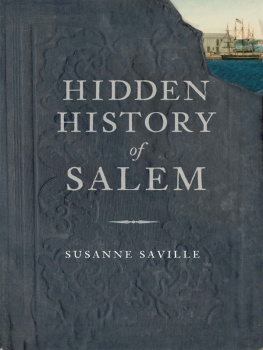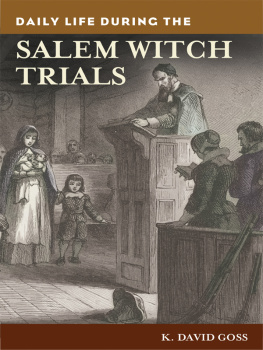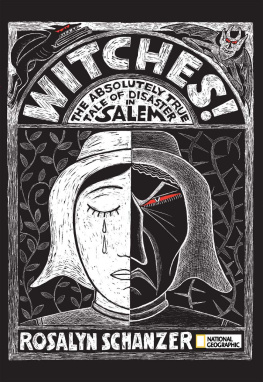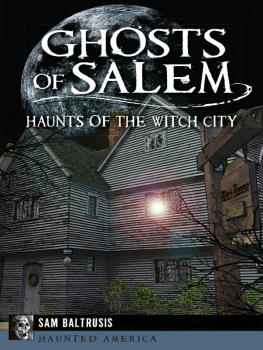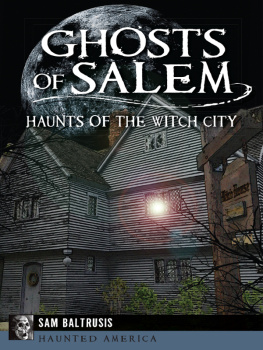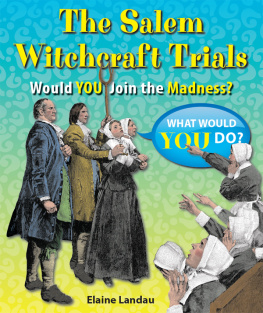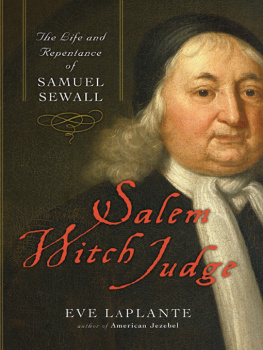Sommaire
Pagination de ldition papier
Guide
Copyright 2022 by Edward J. Renehan Jr.
All rights reserved
Published by Chicago Review Press Incorporated
814 North Franklin Street
Chicago, Illinois 60610
ISBN 978-1-64160-341-6
Library of Congress Control Number: 2021944642
Typesetting: Nord Compo
Printed in the United States of America
5 4 3 2 1
This digital document has been produced by Nord Compo.
For my grandchildren
Connor William
and
Annalise Marie
Time flies over us but leaves its shadow behind.
Nathaniel Hawthorne, The Marble Faun
You see, for a while [Daniel Webster] was the biggest man in the country. He never got to be President, but he was the biggest man. There were thousands that trusted in him right next to God Almighty, and when he argued a case, he could turn on the harps of the blessed and the shaking of the earth underground.
Stephen Vincent Bent,
The Devil and Daniel Webster
Prologue
Murder, though it have no tongue, will speak.
William Shakespeare, Hamlet
The April 1830 murder of wealthy eighty-two-year-old shipmaster, trader, and slaver Joseph White in Salem, Massachusetts, inspired not only national journalistic attention but also something more: notable literary contemplations by none other than Salem native Nathaniel Hawthorne, who actually knew several of the participants in the crime. Hawthorne used aspects of the murder case, and other elements of Salem history and culture, to fuel extended ruminations on dark and complex themesmost notably, the nature of guilt, both inherited and otherwise.
The White murder also served as one of Americas first real-life experiments in what would become the classic tableau of that genre known as the detective story. Writing in 1940, Edmund Pearson spoke of how the murder of Joseph White had all the fundamental elements of the great procedurals of deduction subsequently crafted by the likes of Edgar Allan Poe and Wilkie Collins. There was hardly, he commented, one omission of scene, of cast, or of stage property. In addition to the morbidly respectable and extremely horrified citizens of the Salem establishment, there was the victim of great wealth and prominence asleep in the presumed safety of his mansion, there were menacing figures observed in darkness on the night of the crime, and there was even talk of a cave in the woods, where a gang of harlots, gamblers and sharpers gathered.
The byzantine, months-long investigation into the murder of Captain White was made all the more interesting to the newspaper-reading public when it was realized that some of the people involved in the affair came from several of the most prominent and prosperous families on the entire Eastern Seaboard. This interest was heightened further by the Gothic fascination with which many already viewed Salem, home to the infamous witch trials of 1692. There was also Captain Whites sordid history in the slave trade at a time when Massachusetts was becoming imbued with heated antislavery sentiment, a fact that made him quite an unsympathetic victim. Add to this the participation in the trial of one of the most famous men in the country at that time: the eloquent and brilliant Daniel Webster, then a sitting senator from Massachusetts, who came aboard as a freelance prosecutor and in that capacity rendered what is, still today, considered one of the finest summations ever uttered in an American courtroom.
The overall story of the White murder is so utterly engaging from so many different angles that one at first wonders why the taleas much a story of murder as it is the study of the social history related to the great maritime families of the New England coasthas remained so obscure for so very long, since the days when it dominated headlines up and down the Eastern Seaboard. But there are reasons, which form a unique and important story unto themselves.
The suppression of this story over many decades has been due to direct efforts by wealthy descendants of several Salem shipping dynastiesprime players in the dramawho wished the tale to dry up and blow away. Suppression over the course of nearly two centuries has taken many forms. It has included, but not been limited to, the recall, rewriting, and republication of an early Daniel Webster biography, this exercise financed by the White family in order to eliminate all mention of the murder and trial. In this way, they hoped to erase from memory the visage of Joseph White, who added so much to the family wealth through his lucrative but shameful career as a slaver.
Other tools of suppression were available to descendants of these same Salem clans by virtue of their roles as major benefactors of the Peabody Essex Museumthe prime holder of documents, relics, and even real estate involved in the story. Throughout many decades, these families exercised great influence over which archives were to be open or closed and how objects related to the crimeincluding the site of the murder itselfwere to be maintained and interpreted.
Over time, various descendants of those involved with the 1830 episode married into the very highest ranks of American society, allying themselves with the Adams, Endicott, and du Pont families, to name just a few. When these scions went on to become captains of industry and presidential cabinet secretaries, they did not need the stark memory of one ancestral ghosts career as a slaver, or another ancestral ghosts propensity for murder, haunting their families, lives, and careers. But some ghosts cannot be exorcisedat least not permanently.
Thus, the cases very obscurity, and the reasons behind that, form a significant part of the talea tale worthy of Hawthorne. It is not down on any map, wrote Hawthornes close friend Herman Melville in Moby Dick, true places never are. The story to be told here, though entirely true, has been largely, though not entirely, unmapped for some 190 years.
Old Salem by Moonlight
Murder, like talent, seems occasionally to run in families.
George Henry Lewes,
The Physiology of Common Life (1859)
We have it on record that there was a bright, full moon in Salem, Massachusetts, on the evening of Tuesday, April 6, 1830. If one were viewing the town of fourteen thousand from the high ground of that grim place, Gallows Hill, which according to local lore was said to have been the site of the original witch trial hangings, one would have spotted, in the distance, more than fifty wharves extending into the harbor. These wharves were the result of more than a century of the most powerful and prosperous Salem familiesled at various moments by the Derbys, the Whites, the Crowninshields, and the Storysseeking to subdue the land and waters and make both conform not to natures plan, but to the demands of modern man and modern commerce. Not so long before 1830, Salems prominence as the world center of the highly lucrative China trade, not to mention trade with the East Indies and other ports of the world, had stood undisputed. The citys still fairly robust waterfront was but one symbol of that status.
The wharves hummed with constant activity by day and night. Ships and crews were expensive assets not meant to rest on shore for any longer than was absolutely necessary. The spectator standing on Gallows Hill would have seen the wharves lit brightly with torches and lanterns. He or she would have heard, in the distance, the incessant shouts of stevedores and the groans of tortured gangways as heavy cartons and barrels were hauled up and down. He or she would have spotted the silhouettes of men in the rigging of the tall ships, checking sheets and mending sails in the full moonlight. And the observer would have known that those members of the crews lucky enough to have a few hours away from the vessel could likely be found in the taverns, gambling dens, and whorehouses on the edge of town, abominations such as Salems witch-killing Puritan founders could never have imagined. Many of these were owned and managed by a highly entrepreneurial free Black man of dubious reputation, John King Mumford, while the balance were owned by two men who shall soon become principals in this story. (Most of the vice, one contemporary report said, had popped up after the War of 1812, which, according to several observers, had caused the violent habits of war and privateering to injure public morals.)

